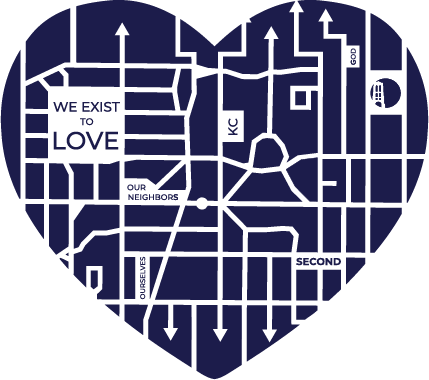I Want to Live in Mister Rogers’ Neighborhood
And So Should You
By Carol Grimaldi, chairperson, Matthew 25 Committee
As a young, working mother, I did something every day parents were told not to do. In the mid-1980s, when my toddler son and I got home from work and day care, I parked him in front of the television so I would have an uninterrupted 90 minutes to fix dinner and tackle other household tasks while he happily watched Sesame Street and Mister Rogers’ Neighborhood.
It turns out he could not have been in better hands.
The values imparted by both those shows are the ideals most parents want their children to learn: embracing diversity and inclusion, acceptance, caring and compassion, friendship, loyalty and love, creativity and learning, and so much more. Adults would also benefit by watching these shows.
Sunday, March 20 would have been Fred Rogers’ 94th birthday. Mister Rogers’ Neighborhood was produced from 1968 to 2001, and Rogers died in 2003 at the age of 74. He was an ordained Presbyterian minister. Since last year, the Presbyterian Church (U.S.A.) has been observing Mr. Rogers’ Day, and this year dedicated its March “Being Matthew 25” webinar to giving viewers a glimpse into what a Matthew 25 world looks like through Mister Rogers’ Neighborhood.
Rogers was passionate about children—all children—and he embodied Jesus’ teaching that causes us to ask, “Who is my neighbor?” while demonstrating how to be a great neighbor. Everyone was Mister Rogers’ neighbor, and he respected and cared for all of them. He urged us to bring our heart into our listening to our neighbors as he believed there is nobody you can’t learn to love if you know their story.
There was no “other” in Mister Rogers’ Neighborhood. The show’s Land of Make Believe was populated by quirky, fallible animal and human beings who were loved by their neighbors, even when they were irritating or hurtful. His shows were groundbreaking by who was introduced to viewers, including non-white performers like Yo-Yo Ma, and experts on the topics Rogers wanted children to understand such as fear, divorce and death.
People with disabilities were certainly not “others,” but individuals with talent and dreams. He had a frank conversation with ten year-old Jeff Erlanger in 1981 about his disabilities and life in an electric wheelchair. Erlanger became an advocate and activist for disability rights; he died in 2007 at the age of 36.
Arguably one of the earliest and strongest anti-racism statements made on television, especially in a children’s program, was Rogers sharing a wading pool with African-American neighborhood Police Officer François Clemmons in 1969, teaching children the truth that there is no “other.”
Fred Rogers wanted us to know we are all neighbors. Now events in Ukraine and Afghanistan and other troubled spots throughout our country and the world are reminding us we live in a global neighborhood.
The Presbyterian-wide Matthew 25 initiative—focused on dismantling structural racism, eradicating systemic poverty and building congregational vitality—is rooted in loving our neighbors as ourselves. Rogers said his mother told him, “Look for the helpers. You will always find people who are helping.” Rev. Dr. Diane Moffett, president and executive director of the Presbyterian Mission Agency, expands on this by saying helpers are the disciples who are called to do the work of Matthew 25, and there is plenty of work to do.
I like to think Mister Rogers would have approved of Second Presbyterian Church’s mission statement: “We exist to love God, ourselves and others - whoever, however and wherever - with a love that transforms us all.” This, and our core values, reflect aspirations of a congregation willing to work to build Mister Rogers Neighborhood throughout our world by dismantling structural racism and eradicating systemic poverty, through which we will realize the steady building of congregational vitality. I believe we can do it!


